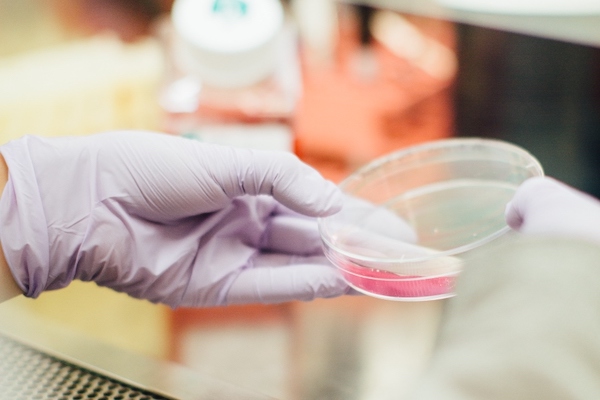Where children are conceived through artificial insemination or the transfer of an embryo, the Human Fertilisation and Embryology Act 2008 dictates who the legal parents will be. The rules are broadly designed to protect the status of parents who conceive through egg, sperm and embryo donation, whether you are in a different-sex or same-sex relationship.
Birth mothers
If you give birth to a child you are the legal mother. No other person is the legal mother, including anyone else provides the eggs (whether a donor or your partner).
Being a child’s legal mother means that you have:
- the duty to register the birth and be recorded as the mother on your child’s birth certificate,
- parental responsibility – the legal right to make and be involved in decisions about your child’s care, including giving medical consent, and making decisions about education, religion etc,
- financial responsibility – the duty to provide for your child, including paying child maintenance if they do not live with you, and
- status rights – having a lifelong mother-child connection for the purposes of things like British nationality and inheritance and pension rights.
The birth mother’s spouse or civil partner
You do not have to be a biological parent to be the legal father or second legal parent of a child. If you are married to or in a civil partnership with the birth mother then you will be the legal father (if male) or the second legal parent (if female) of any child conceived, unless it is shown that you did not consent to the conception. The law applies wherever the conception takes place with your consent through IVF or artificial insemination (not sexual intercourse), whether at home or at a clinic in the UK or overseas.
As a married legal parent, you must be named on your child’s UK birth certificate and will automatically share parental responsibility with your child’s mother, giving you the authority to make and be involved in decisions about your child’s care. You will also be financially responsible and will have a lifelong parent-child status connection with your child for the purposes of things like British nationality and inheritance.
The law applies unless is ‘shown’ that you did not consent to the conception, something which must be proved as a matter of fact. If you are separated and your spouse is conceiving a child as a solo mother or with a new partner and you do not intend to be a legal parent, it may be necessary to collect evidence to ‘show’ that you did not consent to the conception.
For same-sex parents, the law came into effect on 6 April 2009 and only applies to children conceived after that date. For different-sex parents, the law has been in place since 1987.
Unmarried parents conceiving at UK fertility clinics
If you are conceiving a child together through donor conception and you are not married, you can still be a legal parent from birth if you conceive at a licensed fertility clinic in the UK and sign the correct HFEA forms before the artificial insemination or embryo transfer. These are forms by which the birth mother formally nominates someone to be the legal father or second legal parent (HFEA Form WP), and by which the parent being nominated formally agrees to become the legal father or second legal parent (HFEA Form PP). It is important to complete the HFEA forms carefully and correctly before the artificial insemination or embryo transfer takes place.
If you do so, you will be your child’s legal parent from the point of conception. This gives you a lifelong status connection with your child (for the purposes of things like nationality and inheritance) and it makes you financially responsible for your child. Legal parenthood cannot be undone at a later stage, other than through adoption.
When your child is born, it also means that you can be registered on your child’s birth certificate. If you are male you will be registered as your child’s legal ‘father’; if you are female you will be registered as your child’s second legal ‘parent’. For unmarried parents being named on the birth certificate is optional rather than mandatory, and requires you and the birth mother to agree. However, if you are registered on your child’s birth certificate then you will share parental responsibility with the birth mother from the date of the birth registration. This formally gives you the right to make and be involved in decisions about your child’s care. If you are not registered on your child’s birth certificate (but you are a legal parent) then you will not have parental responsibility, but you can acquire it, for example through an agreement with the birth mother or through a court order.
For older children, the historic rules are a little different. Before April 2009, only unmarried fathers through sperm donation (not female second parents) could become legal parents, and the father simply needed to be having ‘treatment together’ with his partner at a UK fertility clinic (no particular forms were required). The system of HFEA nomination forms was introduced on 6 April 2009 at the same time the rules were extended to include same-sex parents.
What happens when clinics get legal parenthood wrong
The front-line nursing staff/clinicians who work at fertility clinics are responsible for ensuring that the important legal process of completing parenthood nomination forms is followed correctly, but there have been a number of cases in which fertility clinics have not managed the paperwork correctly, and as a result the legal parenthood of unmarried fathers and second legal parents has been jeopardised.
In Re E and F (2013), the High Court ruled that a non-birth mother was not a legal parent because the nomination forms had not been properly completed. The Human Fertilisation and Embryology Authority subsequently asked all UK fertility clinics to carry out an audit of their sperm donation cases and shockingly 42% discovered cases in which there had been errors.
A group of affected parents who had been notified of these errors applied to the UK family court for help. In a case known as the ‘Alphabet case’ (2015) the President of the Family Division, as well as being heavily critical of the clinics, used some creative legal gymnastics to find a way of curing the mistakes retrospectively so he could declare that the non-biological parents were, in each case, the legal parents of their children.
Dozens more cases have now been heard in which declarations of parentage have been made to resolve any uncertainty. In A, B and Bourn Hall Clinic (2021) the High Court ruled that, provided there was a general intent for both patients to be legal parents, there did not even need to be a specific signed consent form mentioning legal parenthood.
However, parents whose paperwork is not completed correctly still need to make a court application to confirm their status. In Re AD to AH (2017), we represented a group of parents seeking to resolve relatively minor deficiencies with their parenthood forms, and we asked the President to set out a procedure for managing these cases as sensitively and efficiently as possible. The judgment in this case has meant that, for many new situations going forward, the court process can take place more quickly and often without the parents needing to attend court unless they wish to do so.
Unmarried parents who conceive overseas or through home insemination
If you conceive a child through home insemination or at a fertility clinic outside the UK and the birth mother is not your spouse or civil partner, you will not be your child’s legal parent from birth for the purposes of UK law.
In such cases you cannot be registered on your child’s UK birth certificate as the father or parent (even if you marry or register a civil partnership during the pregnancy) and you will need to take steps after the birth to become a legal parent through adoption if you wish to do so. It is also sensible to consider what interim measures you can put in place to protect your family, including making a specialist will. Find out more about securing your parenthood through adoption and about securing parental rights in ways other than adoption.
Are sperm donors legal fathers?
The law gives protected status to sperm donors, so that they cannot be held legally or financially responsible for any child conceived as a result of their donation. However these rules only apply in two very specific circumstances:
- Where the child already has two legal parents; or
- Where the donor registers with a UK fertility clinic and donates to unknown recipients.
In cases which fall outside this, a donor may be the legal father of the child. This is most commonly the case if known donation takes place via home insemination to a single mother or unmarried parents.
Find out more about known sperm donation.
The UK’s leading conception lawyers
Find out more about how we support those creating families
Related articles

Co-parenting arrangements and multi-parent families
Parents who ae not in a relationship with each other but each want a family may agree to conceive a child together as co-parents. If both are single, your child will typically have…

UK law for stored eggs, sperm or embryos
The Human Fertilisation and Embryology Authority was set up in 1991 and comprises members who are clinicians, researchers or fertility/embryology…

Legal parenthood where a child is born after their parent has died
Where a child is born after their parent has died, there can be complex questions about whether the deceased parent is a legal parent, and what can be recorded on the child’s birth…
